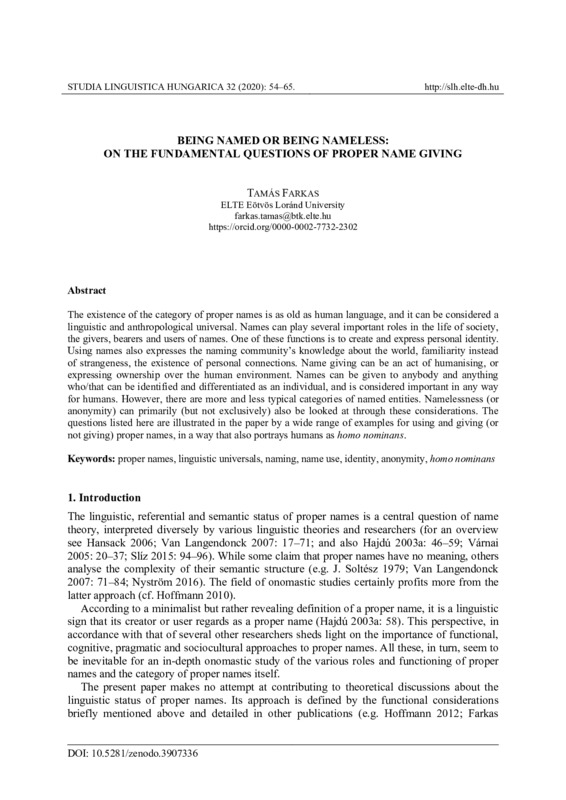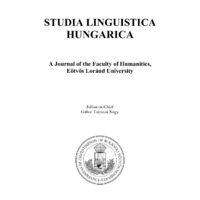Item sets
Title
eng
Being named or being nameless: On the fundamental questions of proper name giving
Author
Issue
Publisher
Eötvös Loránd University, Faculty of Humanities See all items with this value
Date issued
2020
Place of publication
Page start
54
Page end
65
Language
Identifier
Subject
eng
proper names
eng
linguistic universals
eng
naming
eng
name use
eng
identity
eng
anonymity
eng
homo nominans
Document type (Getty AAT)
Domain (Getty AAT)
Abstract
eng
The existence of the category of proper names is as old as human language, and it can be considered a linguistic and anthropological universal. Names can play several important roles in the life of society, the givers, bearers and users of names. One of these functions is to create and express personal identity.Using names also expresses the naming community’s knowledge about the world, familiarity instead of strangeness, the existence of personal connections. Name giving can be an act of humanising, or expressing ownership over the human environment. Names can be given to anybody and anything who/that can be identified and differentiated as an individual, and is considered important in any way for humans. However, there are more and less typical categories of named entities. Namelessness (or anonymity) can primarily (but not exclusively) also be looked at through these considerations. The questions listed here are illustrated in the paper by a wide range of examples for using and giving (or not giving) proper names, in a way that also portrays humans as homo nominans.


